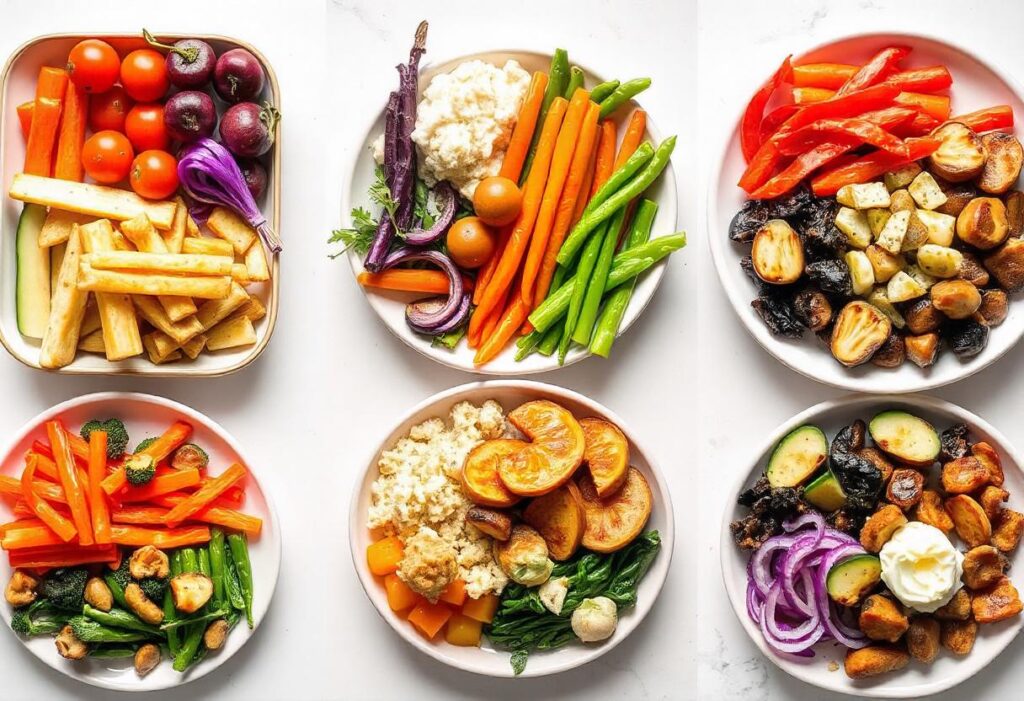Does the idea of figuring out what’s for dinner every night fill you with dread? Do you find yourself reaching for takeout menus or cereal boxes more often than you’d like? If so, it’s time to discover the magic of meal planning.
Meal planning isn’t just for dieters or health nuts. It’s a practical tool that can transform your relationship with food, saving you time, money, and mental energy. Let’s dive into the essentials of meal planning and equip you with the knowledge to create a system that works for you.
Why Meal Planning Matters
- Reduces Decision Fatigue: We make countless decisions every day, and constantly deciding what to eat can lead to decision fatigue. Meal planning eliminates this daily dilemma.
- Saves Time & Money: No more aimless grocery store wandering or last-minute takeout orders. With a plan in place, you’ll shop efficiently and reduce food waste.
- Promotes Healthier Eating: Planning ahead makes it easier to incorporate nutritious ingredients and avoid impulsive, unhealthy choices.
Minimizes Stress: Knowing what’s on the menu for the week brings a sense of calm and control to your daily routine.
The 6-Step Meal Planning Process
- Check Your Calendar: Review your upcoming week for any events that might impact your meals. Plan around work dinners, social gatherings, or anticipated takeout nights.
- Inventory Your Kitchen: Take stock of your pantry, fridge, and freezer. This helps you utilize what you already have and avoid unnecessary purchases.
- Choose Your Recipes: Select recipes that fit your lifestyle and preferences. Consider meal prepping for grab-and-go options or choose quick and easy recipes for weeknight cooking.
- Fill in Your Meal Planner: Use a template or create your own to map out your meals for the week. Remember, flexibility is key; don’t be afraid to swap meals around as needed.
- Create Your Grocery List: Compile a list of ingredients based on your chosen recipes. Double-check your pantry before heading to the store to avoid duplicates.
- Go Shopping: With your list in hand, you’re ready for a focused and efficient grocery trip.
Additional Tips for Success
- Start Small: If planning a whole week feels overwhelming, begin by planning just a few meals or focus on one meal type, like breakfast.
- Embrace Leftovers: Cook once, eat twice! Leftovers can be repurposed into new meals, saving you time and effort.
- Involve Others: If you’re cooking for a family or partner, get them involved in the planning process to ensure everyone’s preferences are considered.
- Be Realistic: Don’t set yourself up for failure by choosing overly complex recipes or ingredients you can’t easily find.
- Prioritize Enjoyment: Meal planning shouldn’t feel restrictive. Choose foods you genuinely enjoy eating to make the process sustainable.
- Don’t Give Up: There will be weeks when your plan goes off track. That’s okay! Learn from the experience and keep going.
Meal Planning Resources
- Workweek Lunch: Offers meal planning templates and tips, especially for those new to the process.
- Stay Fit Mom: Provides single-serve meal prep ideas with macro calculations, perfect for portion control and fitness goals.
- The Kitchn: Features creative meal plans and recipes, including options for cooking for one.
Remember: Meal planning is a journey, not a destination. Experiment, find what works for you, and enjoy the benefits of stress-free cooking!
References:
- Workweek Lunch: https://workweeklunch.com/meal-planning-for-beginners/
- Stay Fit Mom: https://stayfitmom.com/single-serve-meal-prep-ideas/
- The Kitchn: https://www.thekitchn.com/cooking-for-one-meal-plan-267631

